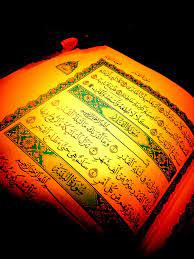
Qadr Night Among the Shia Muslims

Qadr Night Among the Shia Muslims
Shia Muslims observe Qadr Night, also known as ‘Laylat al Qadr,’ the ‘Night of Destiny’ or the ‘Night of Power,’ every year in Ramadan (the 9th Islamic month) and it is considered to be the holiest night of the year for Muslims.
The exact date of Laylat al-Qadr is not mentioned in the Quran. Shia Muslims believe that Laylat al-Qadr is to be found in the last ten odd nights of Ramadan but mainly on the 19th, 21st, or 23rd of Ramadan, with the 23rd being the most important night. As a result of this uncertainty, many people will treat each odd-numbered day in the last ten days of Ramadan with increased reverence.
Shia Muslims believe that the Quran was revealed to the prophet Muhammad on this night.[1] and it comes with blessings and mercy of God in abundance, sins are forgiven, supplications are accepted, and the annual decree is revealed to the angels who carry it out according to God’s Grace.
Praying for Forgiveness
According to the Quran, the Night of Decree is better than a thousand months put together[2]. Forgiveness and atonement are central themes of this night. Therefore, on the evenings preceding the 19th, 21st, or 23rd of Ramadan, in practice called Ehyaa, many Shia Muslims congregate in their local mosques or the holy shrines of their Imams or children of Imams, Husayniyyas, or their own houses. Most of them spend the whole night praying or reciting the Quran. They beg God for mercy, forgiveness, and salvation. The most famous supplications they recite are the Iftitah Supplication, Abu Hamza al-Thumali Supplication, al-Jawshan al-Kabir, and collective supplications while they keep volumes of the Qur’an on top of their heads.[3]. Some of them also organize talks and discussions on these topics.
In some countries like Iran, the government allows the people to arrive two hours late to work on the following day.
A Day for Good Deeds
Another central feature of Qadr Night is Zakat, which is the practice of giving to charity or contributing to the community in some way called Zakat. While Shias consider the whole month of Ramadan a period of charity, it is believed that by donating your Zakat on the Night of Power, you will gain tremendous rewards. So on these nights, they try to do charities like donations of dawn food and breakfasts, payment of their Nadhr for the dead, feeding the poor, and emancipation of financial prisoners.
Mourning for the martyrdom of Imam Ali (PBUH)
Apart from praying and doing good deeds, Shias also celebrate some events during these nights. The 19th day of Ramadan coincides with the night that Imam Ali ibn Abi Talib (peace be upon him), the first Shia Imam, was attacked in the Mihrab while worshipping in the Great Mosque of Kufa.[4]. The 21st day marks his martyrdom anniversary. So during these nights, Shias mourn for their first Imam and ask God to forgive them because of him.
[1] Staff. “Qadr night from the viewpoint of Allamah Tabtabaei.” Allamah Tabtabaei University. Archived from the original on 3 July 2016. Retrieved 12 June 2016.
[2] The Holy Quran, (97: 3)
[3] Majidi Khamenei, “Nights of Glory in Iran.”
[4] Syed Muhammad Askari Jafari. “A biographical profile of Imam Ali.”